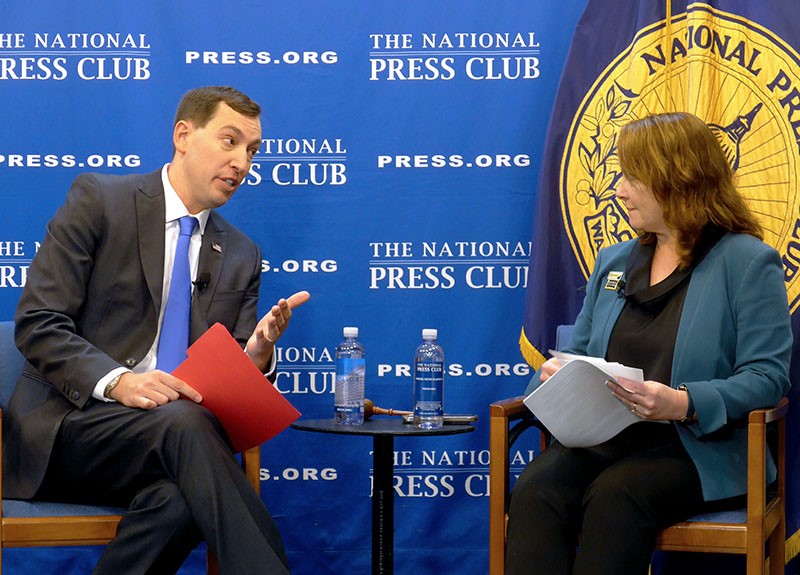Congress must act now to ward off 'insidious' health care crisis, AMA president says

A growing number of physicians leaving the health care system, Baby Boomers becoming eligible for Medicare and aging into age-related health issues requiring added treatment, and stresses born of the COVID-19 pandemic response are trends that have piled on and taken a toll.
There's "an insidious crisis going on in today's health care, and it's not getting the attention it deserves," American Medical Association President Dr. Jesse M. Ehrenfeld told a National Press Club Headliners Newsmaker audience Wednesday, Oct. 25.
Only two years ago, an emergency room physician in California and medical school classmate of his carried "the weight of the pandemic on his shoulders," Ehrenfeld recalled. He took his own life while serving the frontlines -- "I didn't know how to help him, and he didn't know how to ask for help," Ehrenfeld reflected. Other stories followed that also haunt him: a physician recruited to lead an LGBT clinic at Vanderbilt University suddenly quit and relocated to where politics weren't inhibiting care. Another physician and colleague of his in Milwaukee broke down, exhausted and overwhelmed.
"This is a picture of our health care system in 2023. It's not happy, and it's not uplifting," he said.
Though enrollments at medical schools are on the rise, Ehrenfeld said it can take a decade to train each doctor before they move into practice. Once at that point, they may carry with them as much as $250,000 of student loan debt -- a factor that drives a large number of them to urban areas to seek a higher income, leaving health care deserts in rural areas. Even with new physicians entering the field, the rising health care demands of the American population cannot be met. Already, 83 million Americans do not have sufficient access to a physician, the AMA estimates.
"The crisis we have warned about is here, in all corners of our country, rural and urban," Ehrenfeld emphasized.
As many as two-thirds of physicians have admitted to burnout, the highest ever recorded by the AMA, the Mayo Clinic and partnering research universities, he said. More than half of physicians are over the age of 50 and will retire or reduce their hours in the coming years. The firearm and drug epidemics; politicization of safe, evidence-based care; and shrinking Medicare reimbursements are contributing to the collapse of the U.S. health care system, especially among small clinics that are unable to compete with larger hospitals, leading to a consolidation that will harm tens of millions more Americans, he cautioned.
Ehrenfeld called on Congress to take immediate action to save our complex system, ensuring it is not without hope. The AMA's Recovery Plan for America's Physicians identifies five crucial steps to creating a sustainable path that the health care system can rely on, and serve all patients in need, he said.
Medicare payment reform, reducing prior authorization required paperwork, passing legislation to support physician candidates during their education and training, and providing more mental health support for physicians seeking it (so they don't have to fear their licenses are in jeopardy for doing so) are among steps the AMA favors.
"Looking for help is a sign of strength, and [these physicians] deserve our health care's unconditional support ... our patients and nation depend on them," Ehrenfeld said.
